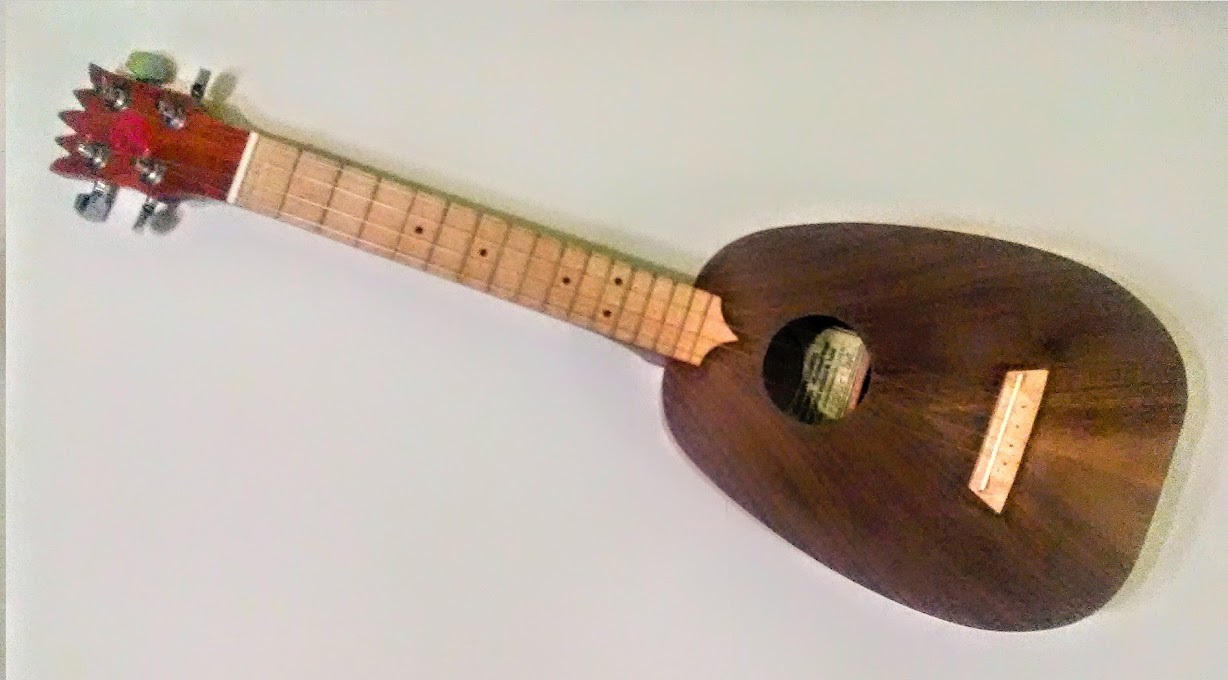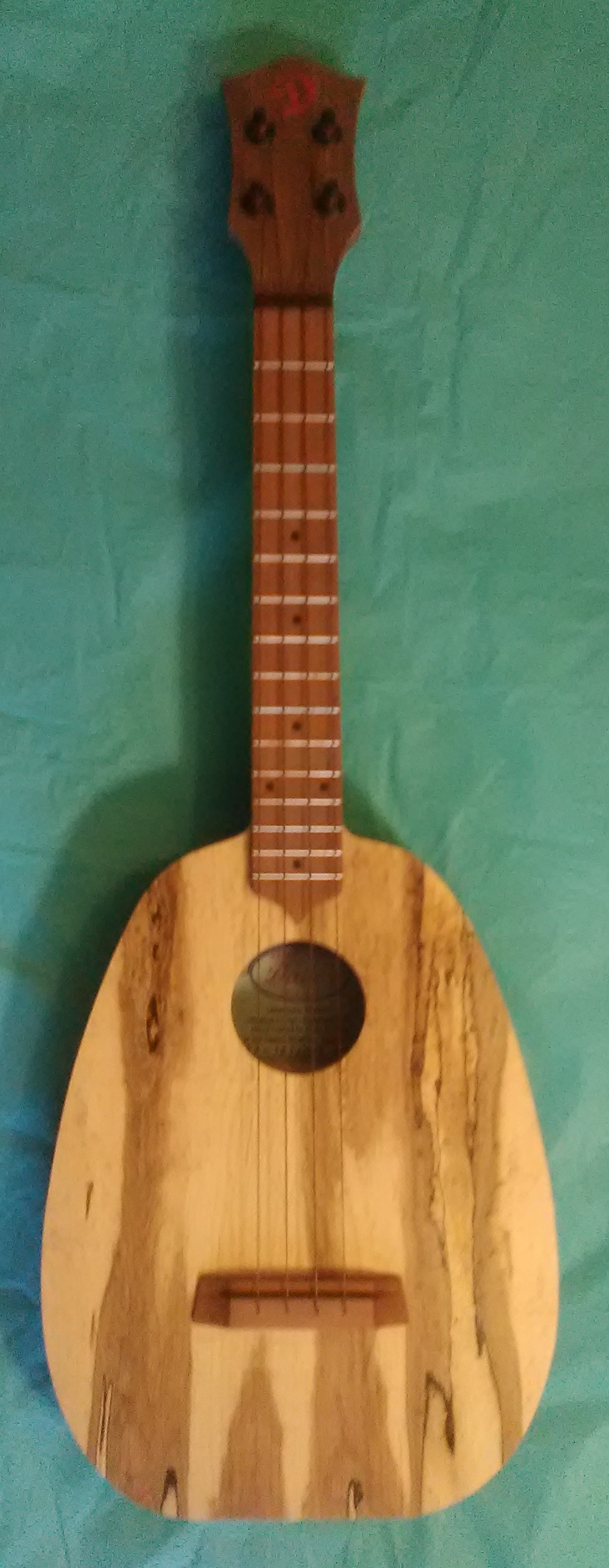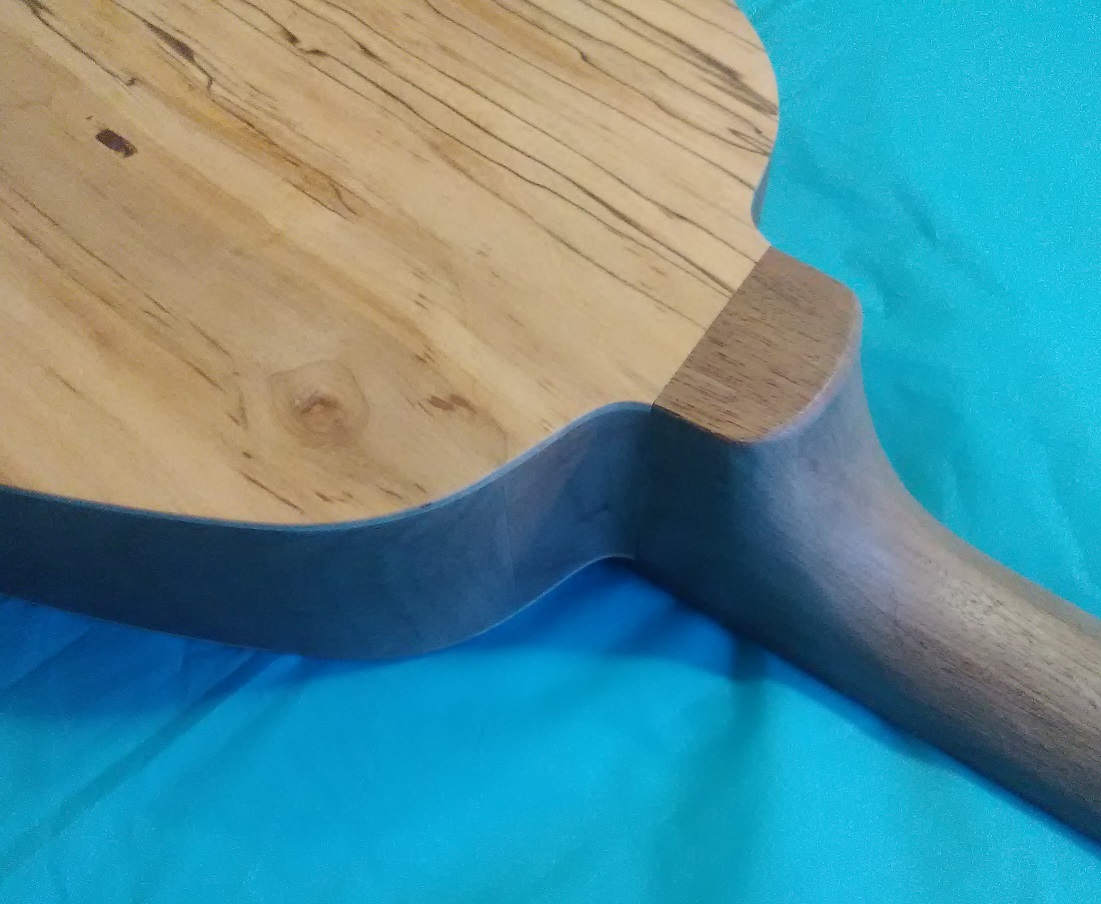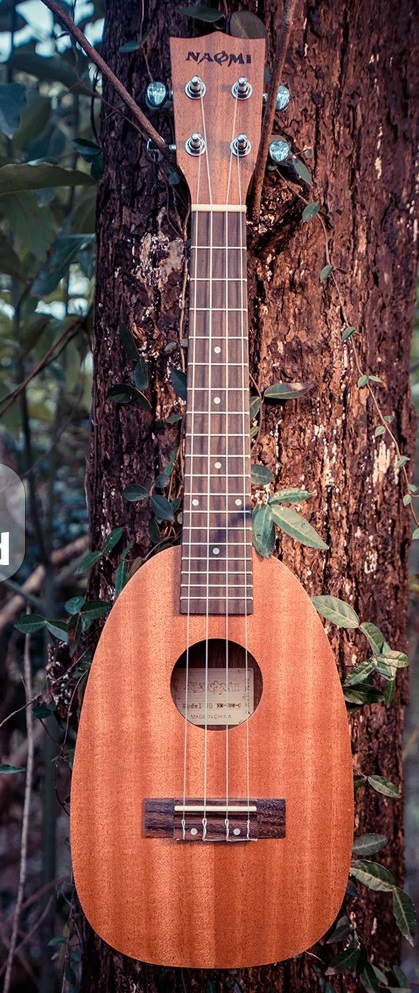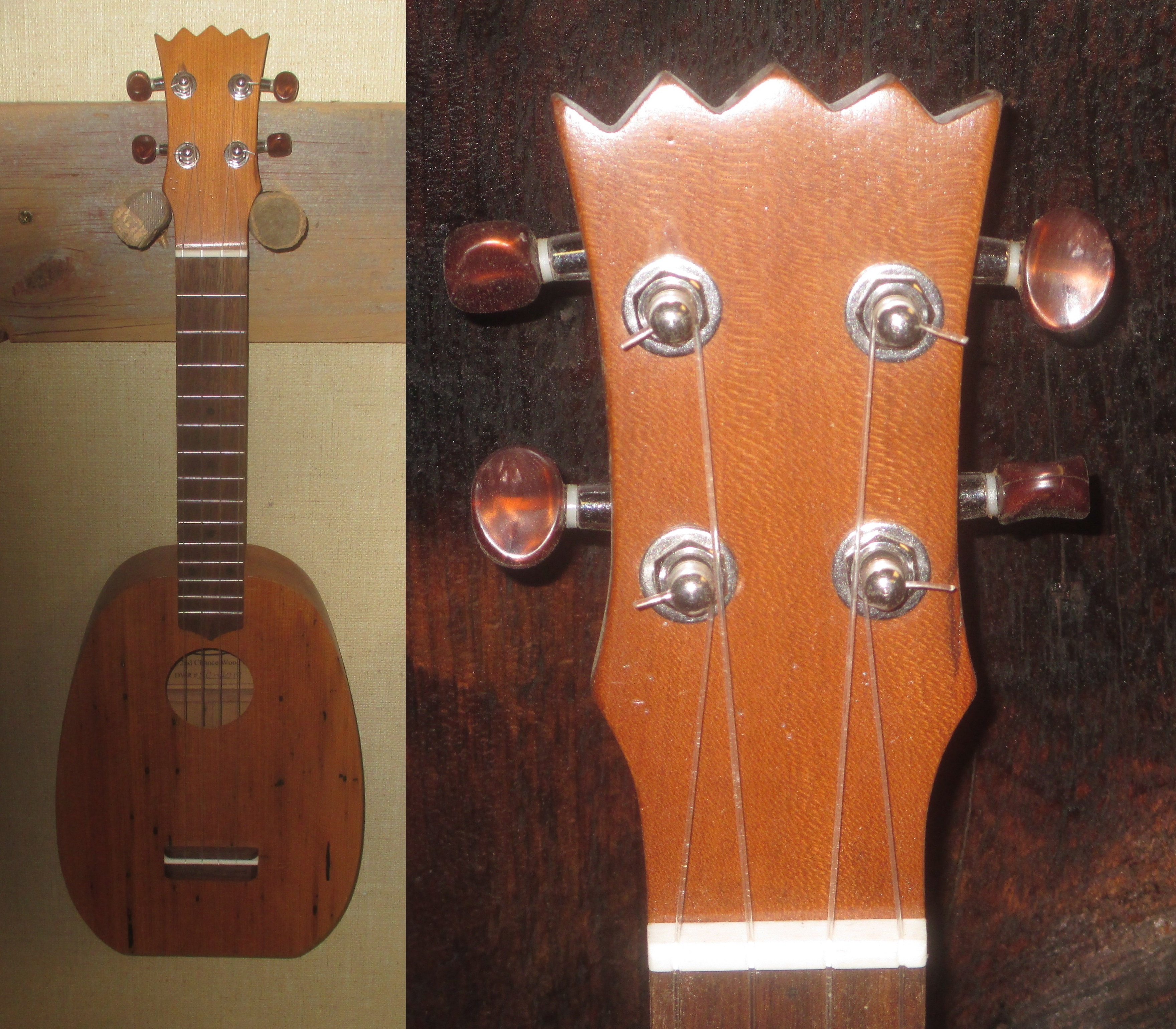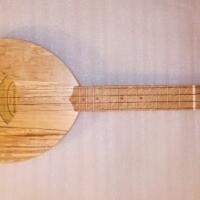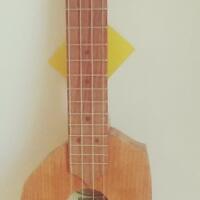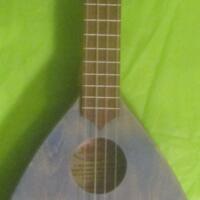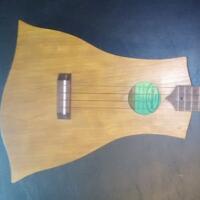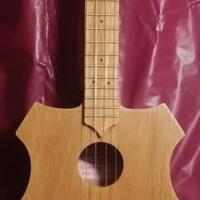About this Product
Note: After the product pic below, the pics include a sampling of other Pineapple ukes I have built.
My Chunky Pineapple ukulele is inspired by one of the most successful alternative uke types--and probably the granddaddy of them all, the Pineapple, introduced to the market in the 1920s.
The top is a nice piece of Black Walnut, the fretboard of Maple. The uke's fulsome body imparts excellent volume and a crisp,mellow tone with excellent sustain. This uke could become a cherished family heirloom, and would make a beautiful gift for any ukulele player, young or old.
Dimensions: Approx. 26" x 8 1/4" x 2 3/8"
Satin Acrylic Finish
All my ukuleles are alternative uke types, from my original designs, or adaptations of vintage types, and made entirely of reclaimed lumber (solid wood).
Please inquire about custom orders, which may be fulfilled through Goimagine, or directly from me by arrangement.
Free shipping to contiguous 48 USA states.
For more info, check out my FB uke page: Dave's Extravagant Ukuleles.
Dave's Extravagant Ukuleles
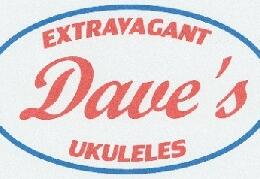
Meet the Maker
I am a long-time carpenter and custom furniture maker who started making ukes in 2016, and it is now my "retirement job"--also a sort of obsession, and what I consider to be my true vocation. In various art and craft activities over the years, I have always gotten off on the creative process of designing and building things. I have found that making alternative ukes offers great scope for this creative process--and the big bonus at the end is that the product produces MUSIC. It seems like a kind of magic.
I took up the uke many years ago, like so many millions of others, as a ready and rewarding way of enjoying musical performance. I am a casual player at best, yet I never tire of learning new songs on the uke and happily singing and strumming away. And this is still the case even as most of my enthusiasm and energies on the ukulele front are now directed toward the building. At this point I have built well over 100 ukuleles.
FOR MORE INFO on Dave's Extravagant Ukuleles, check out my FB uke page by that name. https://www.facebook.com/profile.php?id=100027943045229 I also have a blog that includes my "Alt Uke Manifesto" and other essays on the alt uke phenomenon within the Ukulele Movement. https://altuke.blogspot.com/?zx=847ffe8cca4aeb37

How it’s Made
I build all my ukuleles with 100% reclaimed wood from my local area--wood from demolished old barns and other buildings, cast off furniture,etc.
I'm committed to using reclaimed wood for environmental reasons, plus I really enjoy the process of finding and putting together something great out of stuff normally considered junk.
Shop Policies
I will normally SHIP your ukulele within three business days after your order, and often the next day, providing you with a tracking number.
Please contact me promptly with any issue about your ukulele (raberdavid@yahoo.com), and we will work together to resolve the issue to your satisfaction.
RETURNS are accepted within 30 days, buyer responsible for shipping.
Any requested MINOR alteration will be made free of charge.
ANY alteration,minor or major, necessary for the musical functionality of the ukulele, and due to a defect in materials or workmanship, will be made free of charge.
OTHER requested alterations may be made for a small charge, as agreed.
At the buyer's discretion, a ukulele purchased may be returned and exchanged for a comparable ukulele currently in stock, or a ukulele newly built as a replacement, as arranged between buyer and seller.
PLEASE NOTE: 1. Wood, being a natural product, is sometimes subject to changing in unexpected ways that could effect the appearance or functionality of an instrument. This is a rare occurrence with well-seasoned wood, but always possible in the work of any large manufacturer or independent builder--hence the above provisos. 2. The reclaimed wood I use to build my ukes is of a quality to match newly-milled lumber, and often better regarding seasoning, but it may exhibit characteristics (tool marks, patina, bug holes,etc.) that could be considered unacceptable flaws in a commercial product.
